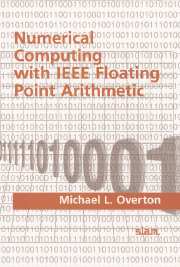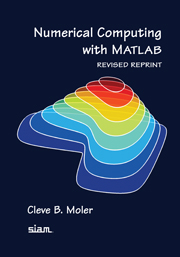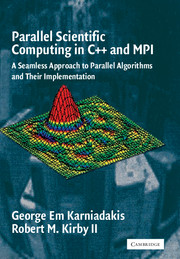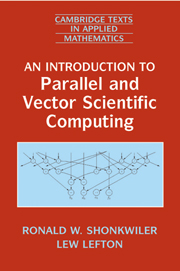Numerical Computing with IEEE Floating Point Arithmetic
Are you familiar with the IEEE floating point arithmetic standard? Would you like to understand it better? This book gives a broad overview of numerical computing, in a historical context, with special focus on the IEEE standard for binary floating point arithmetic. Key ideas are developed step by step, taking the reader from floating point representation, correctly rounded arithmetic, and the IEEE philosophy on exceptions, to an understanding of the crucial concepts of conditioning and stability, explained in a simple yet rigorous context. It gives technical details that are not readily available elsewhere, and includes challenging exercises that go beyond the topics covered in the text.
Product details
April 1998Paperback
9780898715712
118 pages
253 × 177 × 8 mm
0.227kg
This item is not supplied by Cambridge University Press in your region. Please contact Soc for Industrial & Applied Mathematics for availability.
Table of Contents
- Preface
- Acknowledgements
- 1. Introduction
- 2. The real numbers
- 3. Computer representation of numbers
- 4. IEEE Floating Point representation
- 5. Rounding
- 6. Correctly rounded floating point operations
- 7. Exceptions
- 8. The intel microprocessors
- 9. Programming languages
- 10. Floating point in C
- 11. Cancellation
- 12. Conditioning of problems
- 13. Stability of algorithms
- 14. Conclusion
- Bibliography
- Index.






